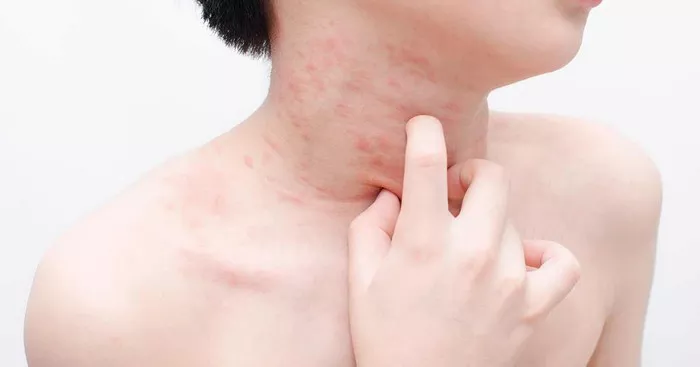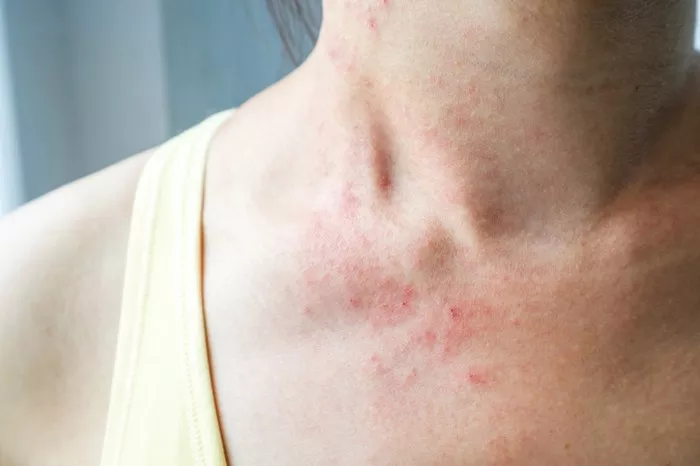Hives, also known as urticaria, are raised, itchy welts on the skin that can be caused by various factors, including allergic reactions, stress, infections, or even environmental triggers. For those who suffer from hives, finding an effective over-the-counter (OTC) antihistamine can be a game-changer in managing symptoms and improving quality of life. This article explores the five best OTC antihistamines for hives, detailing their benefits, mechanisms of action, and considerations for use.
Understanding Hives and Antihistamines
What Are Hives?
Hives are characterized by red, itchy, and swollen welts that can vary in size and appear anywhere on the body. These welts can be fleeting, often appearing and disappearing within hours, but can sometimes persist for weeks or even longer in chronic cases. The exact cause of hives is not always known, but common triggers include:
- Allergic reactions to foods, medications, or insect stings
- Physical stimuli such as pressure, temperature changes, or sunlight
- Infections or illnesses
- Stress or anxiety
How Antihistamines Work
Antihistamines are medications that counteract the effects of histamine, a substance released by the immune system during allergic reactions. Histamine binds to receptors in the body, leading to symptoms such as itching, swelling, and redness. By blocking these receptors, antihistamines can reduce or eliminate these symptoms, providing relief for individuals suffering from hives.
SEE ALSO: What Causes Chronic Hives and Angioedema
The Five Best OTC Antihistamines for Hives
1. Cetirizine (Zyrtec)
Overview and Benefits:
Cetirizine, marketed under the brand name Zyrtec, is a popular second-generation antihistamine known for its efficacy in treating allergic reactions, including hives. It offers several advantages:
- Fast-Acting Relief: Cetirizine typically starts working within an hour of ingestion, providing quick relief from itching and swelling.
- Long Duration: The effects of cetirizine can last up to 24 hours, making it convenient for once-daily dosing.
- Non-Sedating: Unlike first-generation antihistamines, cetirizine is less likely to cause drowsiness, allowing users to remain alert and functional.
Mechanism of Action:
Cetirizine works by selectively inhibiting peripheral H1 receptors, reducing the effects of histamine on the skin and other tissues. This selective action minimizes central nervous system effects, contributing to its non-sedating profile.
Considerations:
While generally well-tolerated, some individuals may still experience mild sedation. Additionally, cetirizine should be used with caution in individuals with kidney or liver impairments, and it’s advisable to consult a healthcare provider before use in these cases.
2. Loratadine (Claritin)
Overview and Benefits:
Loratadine, commonly known by the brand name Claritin, is another widely used second-generation antihistamine. It offers numerous benefits for those dealing with hives:
- Non-Drowsy Formula: Loratadine is designed to provide allergy relief without causing drowsiness, making it suitable for daytime use.
- Long-Lasting Effects: A single dose can provide symptom relief for up to 24 hours.
- Low Incidence of Side Effects: Loratadine is generally well-tolerated, with a low risk of adverse effects.
Mechanism of Action:
Similar to cetirizine, loratadine selectively blocks peripheral H1 receptors, inhibiting the action of histamine and alleviating symptoms associated with hives.
Considerations:
Loratadine is metabolized by the liver, so individuals with liver conditions should use it cautiously. Additionally, while rare, some users may experience headaches or dry mouth as side effects.
3. Fexofenadine (Allegra)
Overview and Benefits:
Fexofenadine, sold under the brand name Allegra, is a potent second-generation antihistamine that is effective in managing hives. Key benefits include:
- Rapid Onset: Fexofenadine can start to relieve symptoms within an hour of taking it.
- Extended Relief: Its effects can last for up to 24 hours, suitable for once-daily dosing.
- Minimal Sedation: Fexofenadine is known for having a very low risk of causing drowsiness.
Mechanism of Action:
Fexofenadine works by selectively blocking peripheral H1 receptors, much like other second-generation antihistamines, thereby reducing the histamine-induced symptoms of hives.
Considerations:
Fexofenadine is excreted unchanged in the urine, so it is generally safe for people with liver impairments. However, individuals with kidney conditions should consult a healthcare provider before use. Additionally, it is recommended to avoid taking fexofenadine with fruit juices, as they can interfere with its absorption.
4. Diphenhydramine (Benadryl)
Overview and Benefits:
Diphenhydramine, known by the brand name Benadryl, is a first-generation antihistamine that remains a popular choice for immediate relief of severe hives. Its benefits include:
- Fast Relief: Diphenhydramine can start to alleviate symptoms within 30 minutes of ingestion.
- Potent Antihistamine: It is highly effective at reducing itching, swelling, and redness associated with hives.
- Sedative Effects: While often seen as a drawback, the sedative effects can be beneficial for those experiencing severe itching that disrupts sleep.
Mechanism of Action:
Diphenhydramine works by blocking H1 receptors in both the peripheral and central nervous systems, which accounts for its sedative properties and potent antihistaminic effects.
Considerations:
The sedative effects of diphenhydramine can significantly impair alertness and coordination, making it unsuitable for daytime use or for individuals who need to remain alert. Long-term use can also lead to tolerance and potential anticholinergic side effects such as dry mouth, constipation, and urinary retention. It is best used on a short-term basis or as directed by a healthcare provider.
5. Chlorpheniramine (Chlor-Trimeton)
Overview and Benefits:
Chlorpheniramine, marketed as Chlor-Trimeton, is another first-generation antihistamine effective for treating hives. Its benefits include:
- Effective Symptom Control: Chlorpheniramine is proficient at reducing itching and swelling associated with hives.
- Rapid Onset: It can start to work within 30 minutes to an hour after taking it.
- Moderate Duration: While not as long-lasting as some second-generation antihistamines, it can provide relief for up to 12 hours.
Mechanism of Action:
Chlorpheniramine blocks H1 receptors in both the peripheral and central nervous systems, similar to diphenhydramine, resulting in reduced histamine activity and alleviation of hive symptoms.
Considerations:
Chlorpheniramine can cause drowsiness and other anticholinergic effects, though these are typically milder than those seen with diphenhydramine. Users should exercise caution when performing tasks that require alertness. Additionally, it may not be suitable for individuals with certain medical conditions, such as glaucoma or prostate enlargement, due to its anticholinergic effects.
Choosing the Right Antihistamine for You
When selecting an OTC antihistamine for hives, several factors should be considered:
1. Severity of Symptoms: For mild to moderate symptoms, second-generation antihistamines like cetirizine, loratadine, or fexofenadine are typically sufficient and preferred due to their non-sedating properties. For severe cases, first-generation antihistamines like diphenhydramine or chlorpheniramine may be more effective but should be used with caution due to their sedative effects.
2. Duration of Relief Needed: Second-generation antihistamines offer the convenience of once-daily dosing due to their 24-hour duration of action. If shorter-term relief is sufficient or preferred, first-generation antihistamines may be considered.
3. Potential Side Effects: Consider the side effect profiles of each antihistamine. Those who need to remain alert during the day may prefer non-drowsy options like cetirizine, loratadine, or fexofenadine. Individuals sensitive to anticholinergic effects should avoid first-generation antihistamines.
4. Underlying Health Conditions: Some antihistamines may not be suitable for individuals with certain medical conditions, such as liver or kidney impairment, glaucoma, or prostate enlargement. Consulting with a healthcare provider is essential to ensure safe and appropriate use.
5. Personal Preferences: Some individuals may respond better to one antihistamine over another due to personal differences in metabolism and receptor sensitivity. Trying different options under the guidance of a healthcare provider can help identify the most effective and tolerable medication.
Conclusion
Finding the best OTC antihistamine for hives involves understanding the unique characteristics and benefits of each medication. Cetirizine, loratadine, and fexofenadine offer effective, non-drowsy relief for mild to moderate hives, while diphenhydramine and chlorpheniramine provide potent symptom control for more severe cases, albeit with sedative effects. By considering the severity of symptoms, duration of relief needed, potential side effects, underlying health conditions, and personal preferences, individuals can choose the most suitable antihistamine to manage their hives and improve their quality of life. Always consult with a healthcare provider to ensure safe and effective use of any medication.
Related Topics:



























